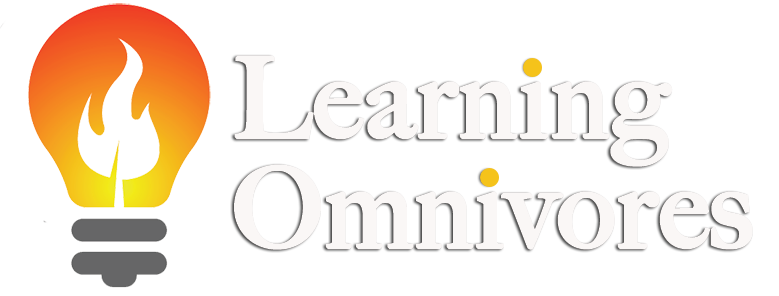Why We Need Change in Schools
Six Skills that Prepare Students for Work and Life in the Fourth Industrial Revolution
Patrick Cook-Deegan
Founder and CEO Wayfinder in Bend, Oregon
May 4, 2022
Why Schools Need to Change
The way to set young people up for success is to teach them durable, future-ready skills. These 6 skills will help students thrive in our fast-changing future.
Google’s former chief education evangelist, Jaime Casap, recently articulated the seemingly impossible task for today’s educators: “We are preparing students for jobs that don’t exist, to use technology that hasn’t been invented, to solve problems we don’t even know are problems yet.”
The world is in the midst of what Klaus Schwab, the founder of the World Economic Forum, has coined the Fourth Industrial Revolution. This particular revolution is characterized by tremendous change to industrial processes and social patterns as a result of increasing interconnectivity and technological advances. New technologies like self-driving cars, machine-to-machine communication, and gene editing (just to name a few) will make some human workers obsolete and create new and as-yet-unimagined roles.
Our main concern as educators has always been helping students prepare for the future, both personal and professional. But when the vast majority of future jobs available to young people don’t yet exist, what skills should we teach to prepare them?
The research is in, and it’s not the technical skills our students will need the most.
A 2021 study by the McKinsey Institute of over 18,000 respondents across 15 countries found that rather than seeking technical skills, 75 percent of tomorrow’s employers will look for employees with cognitive, interpersonal, and self-leading capabilities that enable them to navigate work with self-possession and dexterity.
In other words, the same qualities we have always strived to teach young people—the ones that help them become good friends, siblings, parents, and partners—are the same skills that will make them effective colleagues, employees, founders, and leaders, regardless of the technologies that emerge or shifts to the way we work, communicate, and collaborate. The way to set our young people up for success is to teach them durable, future-ready skills.
Here are Six Core Skills to help students thrive as they step into our fast-changing future:
Self-Awareness
Self-awareness encompasses knowledge of what nourishes and motivates us, the ability to articulate our strengths, identify our weaknesses, and develop effective ways to mitigate and manage stress. That means self-awareness extends far beyond simply “knowing ourselves.” Self-awareness is the skill that helps us relate better to everyone around us, in every sphere of life.
Self-awareness has also been identified as an essential component of effective management. It’s even folded into business schools’ curricular frameworks to help students develop managerial skills, thus creating the leaders of tomorrow.
Adaptability
Adaptability is more than flexibility. When we adapt, we don’t just bend—we adjust. Gaining confidence in the ability to adapt increases our willingness to take risks, make mistakes, and ultimately try again. Adaptability also makes us more comfortable navigating uncertainty and more adept at reframing experiences we might otherwise characterize as failures, both personally and professionally.
Empathy
Empathy challenges us to look beyond ourselves and attune to the feelings and needs of others in our immediate world and beyond. As a result, we’re more likely to act with compassion, understanding, and in the service of a common good. In an increasingly globalized and distributed workforce, empathy is essential for navigating cross-cultural communication, differences, and organizational practices. Empathy has also already been shown to improve outcomes in multigenerational workforces in fields like engineering and to raise businesses’ environmental consciousness.
Collaboration
Feelings of inclusion and belonging, fostered by empathy, are affirmed through the act of collaboration. As with self-awareness, collaboration goes beyond group projects, online discussion boards, or small-group work. These are tools, and they’re only effective after we’ve built meaningful relationships in which we feel enthused and motivated to actively partner with others. The more connected we feel, the better teammates we are. Whether we’re logging on for meetings from different locations around the world or co-located in the same space, collaboration improves organizational performance and results in higher quality products, services, and workplace culture.
Agency
When we know the value of our voice and actions, and understand the power we each have to improve or advance our communities, we will feel emboldened to speak up or act. In exercising our agency, we become active members of our communities, seeking opportunities to rally, advocate, and help further the causes that are important to us. Agency is believed to be the driving force behind self-motivation and satisfaction, both at school and in the workplace. Conversely, a lack of agency contributes to anxiety, which reduces productivity and performance.
Purpose
When we understand our purpose, all of our decisions and interactions with the world are guided by a deep connection to our values. Purposeful people are affirmed by the understanding of who they are, why they’re here, and how they want to grow.
The same McKinsey Institute study found that 70 percent of people report defining their purpose through work. In the wake of COVID-19, the trend of seeking purpose-driven professions is expected to grow. The downstream effect? More engaged, motivated, and resilient employees who feel alignment with their work. Guiding young people to develop purpose can help them find career paths that bring them personal satisfaction and support continued growth in their chosen fields.
Our classrooms are the ideal settings for deep exploration, discussion, and development of durable, future-ready skills like these. Developing competence in these six core skills will ensure today’s students grow into tomorrow’s resilient, inspired, and confident adults, prepared to step boldly into whatever the future holds.
Read Wayfinder’s white paper Putting SEL to Work: Moving Through COVID-19 and the Fourth Industrial Revolution with Purpose to learn what industry and research tell us will be critical, durable skills for the future, and how to foster those in our classrooms.
